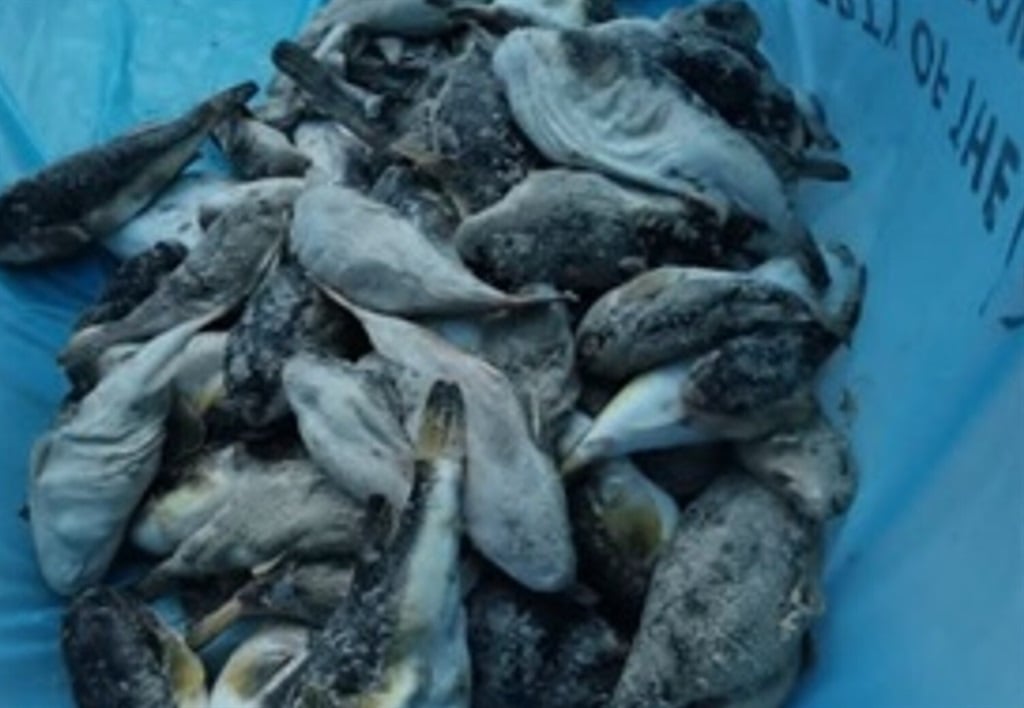
- About 70 bags of dead evil-eye pufferfish weighing 200 kilograms have been removed from beaches in Muizenberg and Fish Hoek in Cape Town.
- The pufferfish washed up on beaches over the weekend.
- The Department of Fisheries has ruled out pollution and red-tide toxins as the cause of the large-scale washout.
Seventy bags of dead pufferfish weighing 200 kilograms have already been removed from Cape Town beaches along the Muizenberg and Fish Hoek coast.
A large number of evil-eye pufferfish washed up along the False Bay coast over the weekend.
The cause of the large-scale washout is still unclear but the Department of Environment, Forestry and Fisheries (DEFF) has ruled out pollution or red-tide toxins as the cause of the beaching.
According to the department, there were no adverse water conditions (pollution) or red-tide toxins that could have caused this large-scale washout.
The DEFF said the causes of past pufferfish mortalities recorded in South Africa and elsewhere included mass courtship, spawning and fighting, which sees male pufferfish inflating themselves and sometimes getting rolled or blown out of the water by waves and/or wind.
The City of Cape Town said it could not confirm the exact cause of the mortalities.
The National Oceans and Coastal Information Management System (OCIMS) monitors and tracks oceanographic and meteorological conditions on the West Coast, False Bay coast and the rest of South Africa. These conditions contribute to the development of algal blooms or so-called "red tides", low-oxygen conditions, large temperature differences (icy to warm water), washouts and mortalities of fish and invertebrates.
The City of Cape Town's Environment Mayco Member Alderman Marian Nieuwoudt said they will continue clean-up operations.
"The City will continue monitoring all affected areas. We want to assure residents that the clean-up operations will be ongoing. The pufferfish is not for human or animal consumption, so we advise that all beachgoers and dog walkers avoid areas that may still need to be cleaned."
The clean-up operation started on Monday and Nieuwoudt has urged beachgoers to avoid the fish, which carries the neurotoxin tetrodotoxin.
"Due to the reporting of a few pufferfish spotted at Fish Hoek beach, the Coastal Management team is now sweeping the area and will continue to monitor this beach as well."
Did you know you can comment on this article? Subscribe to News24 and add your voice to the conversation.
